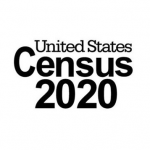Don’t forget! April 1st is Census2020 Day!
Posted: 3/31/2020 (Demography News and Local Events)

There is so much we are juggling in these times, however, don’t let slip this very important national effort – the 2020 Census. It shapes our future and means so much for our communities. The census count determines federal funding which underwrites vital public services and public goods for all of us. The census count informs congressional redistricting. And, the census count contributes towards valuable basic scientific research and research for evidence based policy and more…!
You might be wondering why is April 1st Census Day, when this year’s census data collection began March 12, 2020 and continues until August 14, 2020. There is a good reason. When you complete the census (via mail, online or phone), you will be asked about your normal place of residence on April 1st of this year. Hence the label!
There are many reasons why this year is very unusual and challenging for the decadal census. The COVID-19 pandemic has exacerbated many challenges. It will take extra efforts among all of us to encourage and facilitate census participation. Visit this link to find ways to help the effort or participate yourself.
For college students, completing the decennial census form has always created confusion—and the COVID-19 pandemic has only exacerbated this confusion. College students are supposed to be counted at their “normal” place of residence on April 1. For many students, this is the location of their college or university. Students should still be counted as residents at their “normal” address during the academic year even though they have left campus. Students who normally live in on-campus or college-owned housing are counted as part of the Census Bureau’s group quarters enumeration. Students who live at home normally should be included in their household’s response form.
The Census Bureau has produced a short video and fact sheet to clarify how college students are to be counted. For more information, a prominent demographer authored an article on this topic in a recent issue of The Conversation.
Another challenge for the census was last year’s very public debate about the inclusion of a citizenship question on the census form. Everyone should know that the U.S. courts ruled against the inclusion of a citizenship question on the census form. It is NOT on the census form. Furthermore, your census information is kept confidential and your responses are kept anonymous. The Census Bureau is bound by law to protect your answers and your answers may not be used against you. For more information on this please visit this link.
A third challenge is the additional and new online mode for census data collection. The online guide for the census form offers information in a number of languages and offers you a preview of the census questions you will be asked. It can help to familiarize yourself with the questions before you complete the form.
For all of us with demography running deep in our veins, join along by sending a tweet or instagram post indicating you’ve completed the census and link to @CSDE_UW. Let’s join the #Census2020 team!
Deadline: 04/01/2020